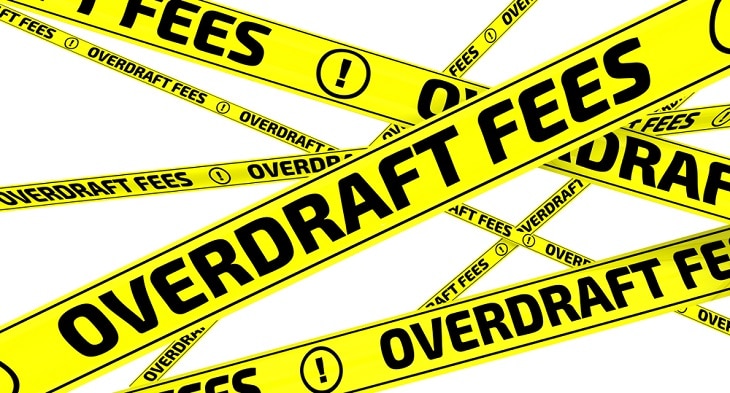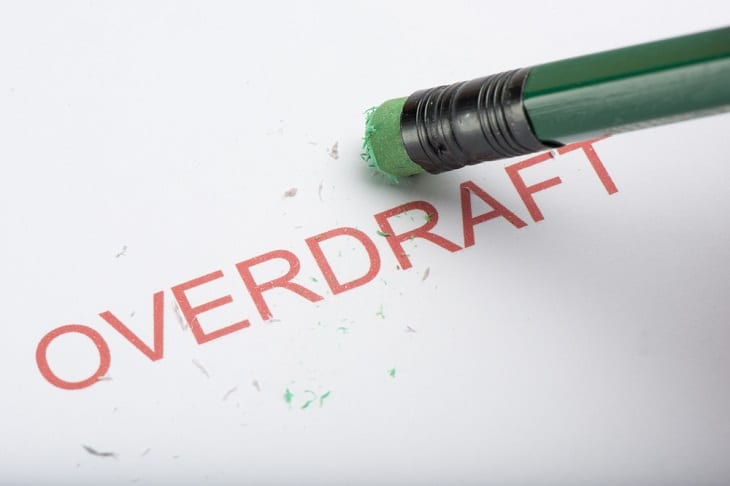Jasmine Birtles
Your money-making expert. Financial journalist, TV and radio personality.

Overdraft charges used to be all about daily and monthly fees. Now, you’re facing annual charges instead.
What does that mean – and what can you do to avoid a surprise bill?

From April 2020, banks won’t be allowed to charge daily or monthly fees for overdrafts. Instead, they have to charge an annual interest rate (APR).
The same APR will be charged on both arranged and unarranged overdrafts.
The rate isn’t set by any governing body: that means some banks might offer overdrafts at 15% APR – but others could charge up to 50%.
It’s supposed to make bank accounts easier to compare, as the charges are simplified and the same flat rate for all types of overdraft use.
No daily charges sounds ideal, right? Actually, it’s not going to benefit many people.
If you only use your overdraft occasionally, you’ll actually benefit from these changes. For everyone else, it spells an expensive future.
It’s likely that banks will remove 0% overdrafts as part of this process, too. So, if you’re currently living in your 0% overdraft, you could soon face a bill. Check with your current bank to see if your fee-free overdraft limit will reduce or become non-existent.
Student and new graduate accounts may not face such changes, as most providers (so far) have agreed to keep the 0% limits on student overdrafts.
Banks don’t have to charge the same rate for all customers, either. Lloyds banking group, for example, revealed they plan to charge most customers 39.9% – but those with bad credit histories could face a charge as high as 49.9%.
If you’re only a little into your overdraft, and have some savings, we suggest paying off your overdraft now. Savings rates are so low that keeping your cash in a savings account won’t grow your money – and your interest charges for using the overdraft will cost significantly more than you earn in savings interest.
If you don’t have much in the way of savings, consider taking a personal loan to pay off your overdraft. If your credit history is reasonable, a personal loan as low as 2% is possible – making it a much cheaper option to pay off your overdraft.

If you’re only a few hundred pounds into your overdraft, you may not be able to get a personal loan to pay it off. Apply instead to a credit union, who will lend for smaller amounts than banks.
If you need to keep your overdraft – or can’t raise the capital to pay it off in time for the charges hike – switch bank accounts.
Switching current accounts also means you could get a switching incentive – at the moment, the highest incentive on the market is £175. You can use that to pay off some of your overdraft!
However, unless your bank has already made the changes to the charges, it’s best to wait until nearer April to switch. Lots of banks haven’t yet announced how much their flat overdraft fee is going to be – so you need to wait to find out which one is offering the lowest rate overall.
It’s always better to live as debt-free as possible, so these new overdraft charges could be the kick you need to earn some extra cash! Paying off your overdraft, instead of staying in it or getting a loan, will give you more financial freedom, and faster, too.
Easy ways to make money include:
In fact, we’ve got a whole section dedicated to ways to make extra money. Check it out here!
If you’re already working all the hours under the sun, can’t get a loan, and you’re struggling to pay bills, don’t panic.
First, contact your bank. Tell them that you’re in a situation where the new fees would put you into serious disadvantage. They have to help you where they can, such as freezing charges for a short period to give you a breather.
Second, contact a debt management charity. The National Debtline and Stepchange are both free debt advice services. They’ll talk through your situation with you and help you set up a repayment plan that you can actually afford. This will affect your credit record – but if you’re already behind on repayments, your credit score will be dented anyway.
Finally, sign up to our newsletter. We send out useful advice on freebies, money management, and ways to make money every week.
If you need more help to manage your debt and find financial freedom, visit Community Money Advice. The charity helps individuals in local communities with free, confidential, financial advice – including budgeting tips, debt management, and financial education.

Some good advice here.
About time banks stopped their extortionate daily charges. Before “daily charges” were introduced my overdraft cost me just £17 per month, if I was in it for the whole month. When they did away with the APR and introduced daily charges instead, the charge for my overdraft went up to £95 per month!!! And the bank had the audacity to say “we have changed it to daily because it makes it easier for people to work out, as well as benefiting customers”. Ummm, how is going from £17 per month to £95 per month a benefit to me??? Also, surely… Read more »